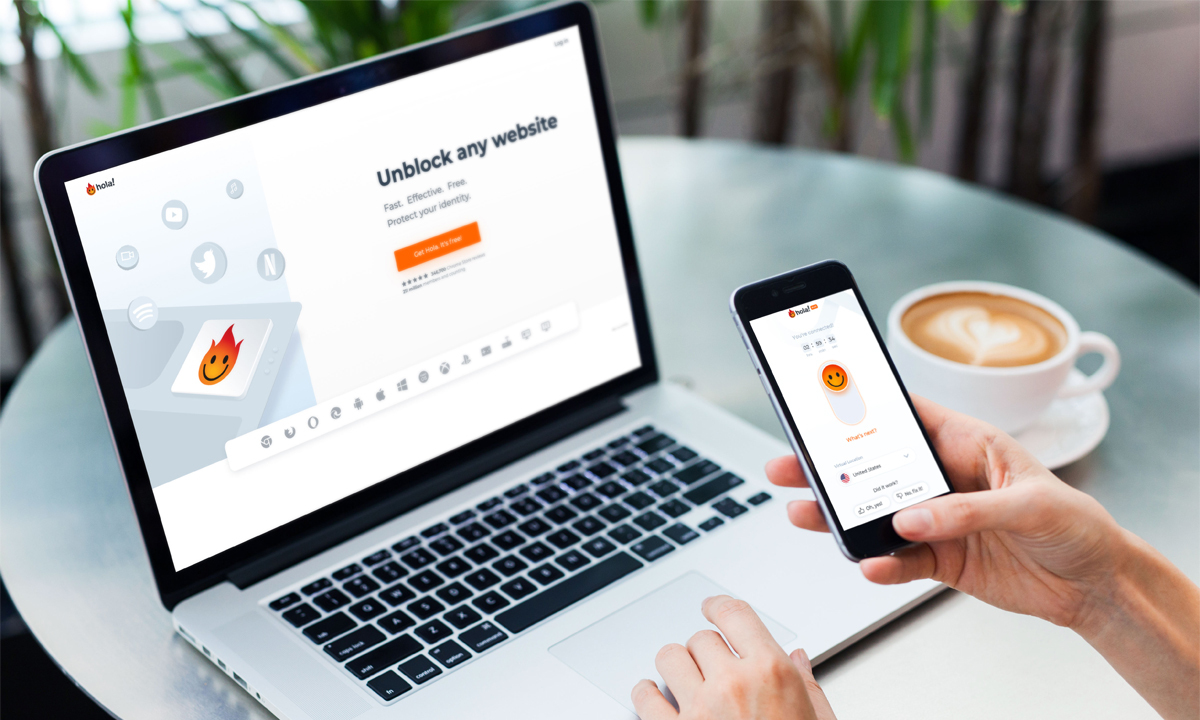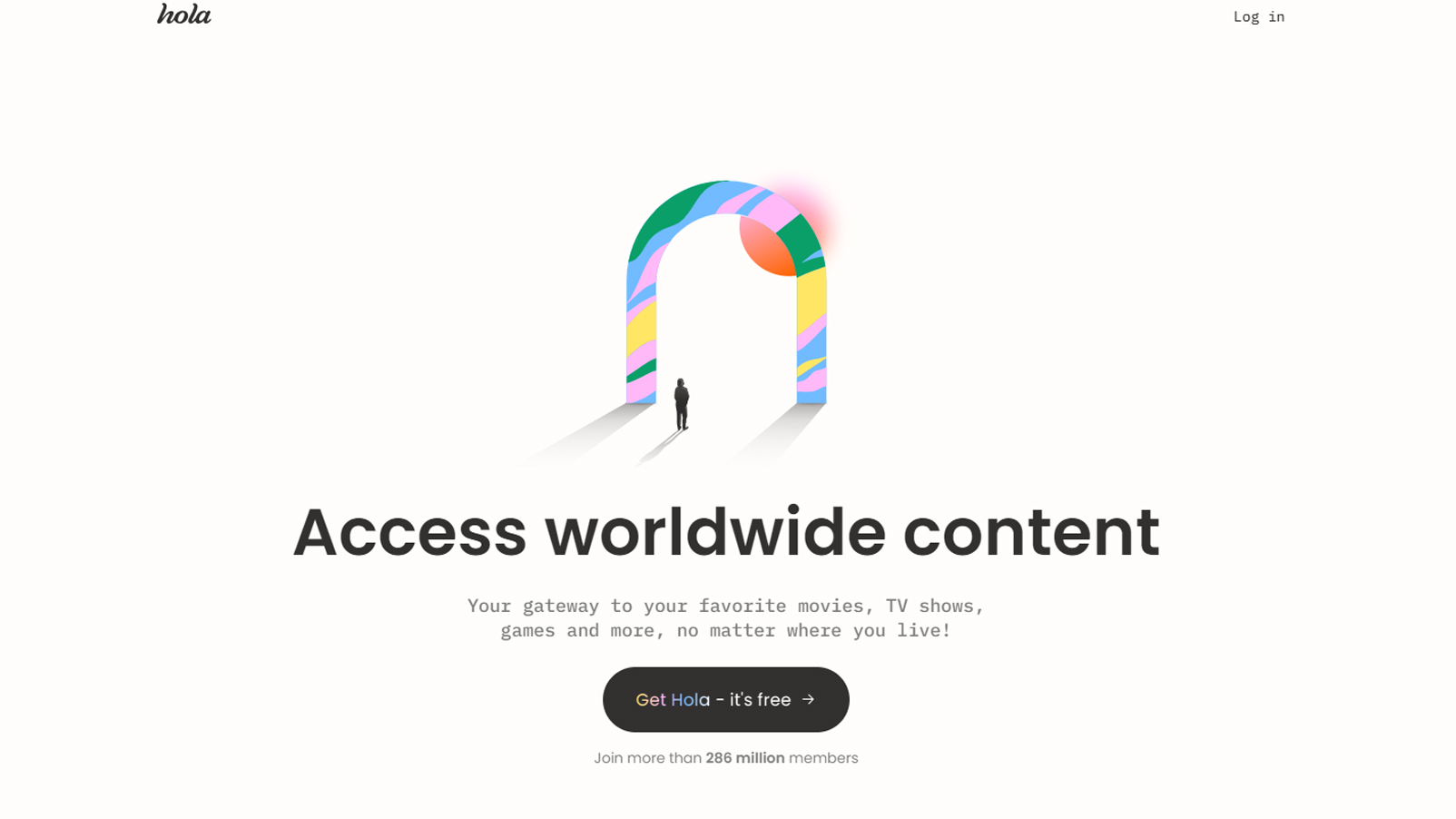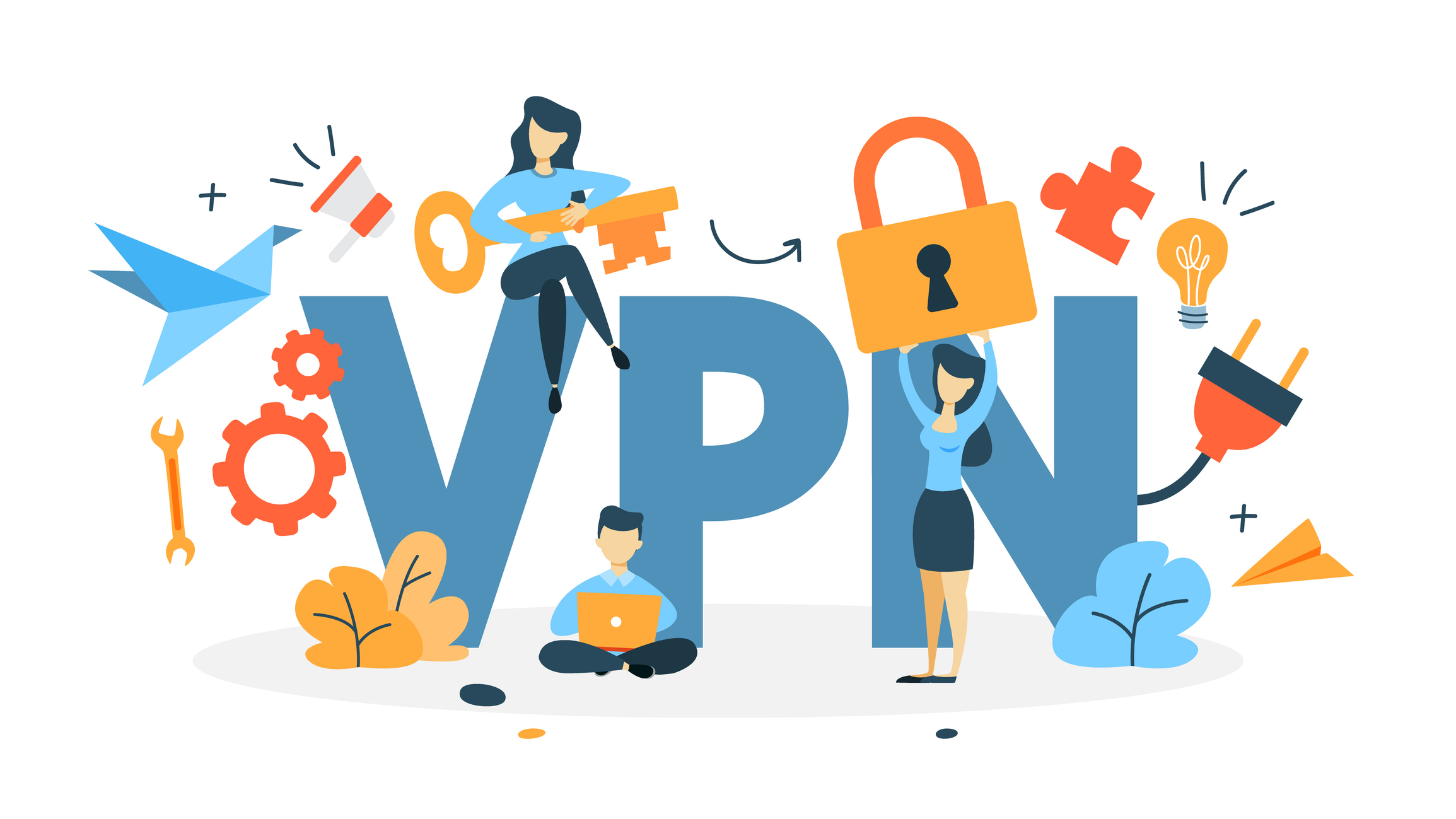
The court of public opinion isn't always right, but it is normally a pretty good indicator. Taylor Swift is a brilliant artist; the Barbie movie was fantastic; ice cream is delicious. But one area where people are flat out wrong is the Chrome Web Store reviews for Hola VPN.
With a 4.9-star rating on the platform, you'd think HolaVPN should be competing with the best VPNs, rather than being dubbed one of our VPNs to avoid, but that's unfortunately not the case.
What is Hola VPN?
In business since 2008, Hola VPN is an Israel-based VPN that has had a whopping 250 million downloads worldwide and supposedly 160 million users.
There is both a free and premium version of the VPN (although we wouldn't recommend either) and it's available on PC, Mac, and iOS as well as the Samsung Galaxy Store (not the Google Play Store).
Prices for the premium version start at $2.99/£2.99 per month for a three-year plan, but we'd urge saving your money here.
What's so bad about Hola VPN?

Hola VPN may be popular, but it's not what we'd consider to be a true VPN. It styles itself as a Peer-to-Peer VPN that, according to the FAQ section on the Hola website, "works by sharing the contributed resources of its users for the benefit of all and for business use by Bright Data."
What this means is that you are one node in a worldwide connection. You can use the IP addresses of others, but they can use yours too. You might just want to watch geo-restricted content on Netflix, but if you're part of a shared network with someone on the other side of the world who's up to no good, they can be using your IP address for anything. This kind of information, combined with other data that Hola VPN logs, can also be enough to render you a victim of a correlation attack.
As the company's FAQ section states: "You provide a certain amount of network and processing power when your computer is not in use." It continues: "For desktop users we use less than 100MB per day. For mobile users, it is around 3MB per day." But any bandwidth usage is too much in our opinion.
Returning back to the original statement in Hola’s FAQs: using Hola allows data collection company Bright Data, formerly Luminati, to use your computer's resources. Hola claims that: "None of your personal information is accessed or collected except your IP address." However, even if that's the case, a VPN provider openly passing your IP address to third parties is a massive red flag.
Further compromising the privacy credentials of Hola is its encryption protocol. It uses IKEv2 encryption, an outdated system that while not explicitly unsafe, has been left in the past by the new WireGuard standard.
We asked Hola for a comment. Hola CEO, Avi Cohen, said: "Hola offers a valuable free service to its users, and our community agrees, consistently rating it higher than any other VPN service. The health of the Internet and the safety of its users are top priorities for Hola."
Hola VPN alternatives

In our opinion, any respectable VPN is better than using Hola, but why not swap a substandard service for one of our top choices?
Pretty much anybody will find something to like in NordVPN: it's fast, secure, and comes with leading anti-virus style tools. Although, we'd be remiss if we didn't point out that NordVPN also suffered a data breach, back in March 2018. Meanwhile, ExpressVPN is more expensive but also incredibly straightforward to use, while Surfshark is great value and super speedy. Importantly, all three of these providers have audited no-logging policies and leading encryption.







